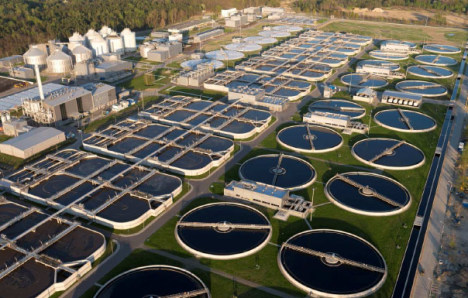Hi everyone!
It’s a familiar chorus on my website to remark on how I haven’t written in a while. Oh well, c’est la vie!
I wanted to give a few updates on what’s going on in my life.
I’ve been at a new job for a little over 6 months now, finally the type of job I want to be in for my career! I’m a wastewater engineer in an office that focuses on that, water systems engineering (safely and efficiently delivering drinking water), and solid waste management (composting at a municipal scale). People who know me and my interests could well imagine why I’d be happy there! I get to do some awesome stuff designing new sewer collection systems, pump stations, wet wells, and wastewater treatment plant upgrades. Here’s a quick breakdown of those details:
- Sewer collection. Where does a city/town want sewers installed? How many houses/businesses will connect and contribute to those sewers? How much wastewater do they produce: maximum, minimum, hourly, monthly, etc? What size sewer pipes are needed to convey that wastewater? How much would construction and installation cost for the new sewer system?
- Pump stations and wet wells. Sewers that flow by gravity (sloped downhill) are cheapest and easiest, but rarely are all locations between sewers and the final wastewater treatment plant all downhill. So at some places water has to be pumped up in elevation at a pumping station so it can then keep flowing downhill from there. Or, wastewater has to be pumped from a pumping station directly through a pipe to a wastewater treatment plant, with the pipe being known as a force main. Questions to figure out and design: How big do the pumps need to be? How can we meet minimum velocity requirements so crap doesn’t settle out of the wastewater? What size force main (pipe) is required, and what material should it be made out of? How big should the wet well (that collects the wastewater at the pump station) be so it meets regulatory and best practice requirements?
- Regulations on how much organic matter, nitrogen, chlorine, and other pollutants/constituents are getting tighter, so wastewater treatment plants need to be upgraded so they can better remove these. Also, treatment plants get old, have equipment nearing the end of their life, or municipalities grow or have new businesses that generate wastewater (breweries, dairies, manufacturing) so treatment plants have to be upgraded to meet higher flows and pollutant loadings. We evaluate multiple different treatment options and work to keep up with new processes and technologies so we can implement the most effective solutions at lowest cost.
That’s just a little snippet of some of the things we do.
I’m sort of a nerd, so I wanted to go into a little bit of detail about my job. I think it’s very important what happens to what we flush down our toilets, and that we don’t think about it very often!
One funny story that just made me think of. My wife was editing a paper for a journal, and it happened to be about wastewater treatment. She remarked to me, “Gross! This article talks about [sewage] sludge all the time!” Which is amusing because she’s completely used to the idea of our composting toilets. Then I go and tell this story to a few colleagues at work, who are used to the idea of sludge and talk about it and perform calculations related to it every day. One of them is kind of grossed out about the idea of composting toilets! To one, composting poo is normal and sludge is gross. To another, composting poo is gross and sludge is normal!
I really got a kick out of that.
For my next post, I’ll continue updates on life other than work, including what’s going on with my book! And in case you’re skeptical that I’ll get it done promptly, I’m working on it right now and will set it up to automatically publish a few days after this post!


Great and happy news!! Fernando
Thanks Fernando! And for your support earlier kickstarting this process again. 🙂
Ethan, I really enjoyed reading about exactly what sorts of issues you work on, I have wondered what an engineer in your field actually does and now I can speak to it with a bit of intelligence. Can’t wait to hear about your book too!
Marma the mother-in-law
Thanks Marma!
a nice turn of career; to live by your own principles is a reward in itself–do keep us informed and educated by your posts. i am only grossed out by the lack of recycling awareness. when nature has been doing it since trees fell down and animals dropped fertilizer on the land, we are late comers to the process and must respect the complete cycle. right?
Very true. Nature is a source for both inspiration and efficiency, if only we’d look!